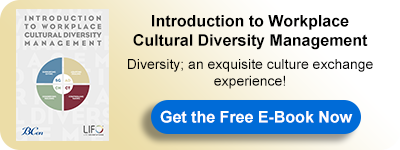Creating an Open Culture
In the age of the connected stakeholder (employees, partners, customers and the communities we serve), your company culture is your brand. Businesses that intentionally create and cultivate a healthy culture are most likely to earn the trust and loyalty of their stakeholders.
Several definitions have been proposed to define culture. Simply, when people of different backgrounds and beliefs come together, a culture emerges. When we talk about “work culture” within an organization, what we mean is: a set of shared rules, beliefs, and attitudes that dictate how things are done and how people interact.
Employees spend more time at work than they spend with family. Companies need to define their culture in order to hire suitable employees that fit for their environment. An enthusiastic, extroverted, creative individual would not fit well in a rigid, process oriented firm. Understanding individual differences allows us to answer whether or not individuals are fit for the company and in which part of the company they should be placed.
Culture is more or less the environment in which employees should prosper. Many companies now believe that a positive, open company culture will increase motivation and boost employee productivity.
Whether formally or informally stated, culture will shape a company’s image and brand persona. An open and inviting culture that promotes inclusion and acceptance will result in multiple benefits including:
- Improvements in motivation
- Increased accountability
- More trust and confidence in management and the organization as a whole
- Decreased employee entitlement mentality
- Greater employee engagement
- Increased work satisfaction
- Increased company pride
- Improved customer experience and loyalty
- More cohesive teams
- Greater company success as measured by profit and revenue
Company culture will often determine not only how employees are treated but also how they behave when a problem or crises arises. Although airline companies are often critics for the unfriendly attitude of their employees or their poor customer service, Southwest Airlines have gained customer loyalty through employees who try hard to help. Southwest Airlines have been in the market for 43 years and have managed to communicate its goals and vision to employees in a way that makes them a unified team. Employees are given permission to go that extra mile to make customers happy, empowering them to do what they need to meet the company vision.
For more about this topic, download our latest book "Introduction to Workplace Cultural Diversity Management" for FREE:
